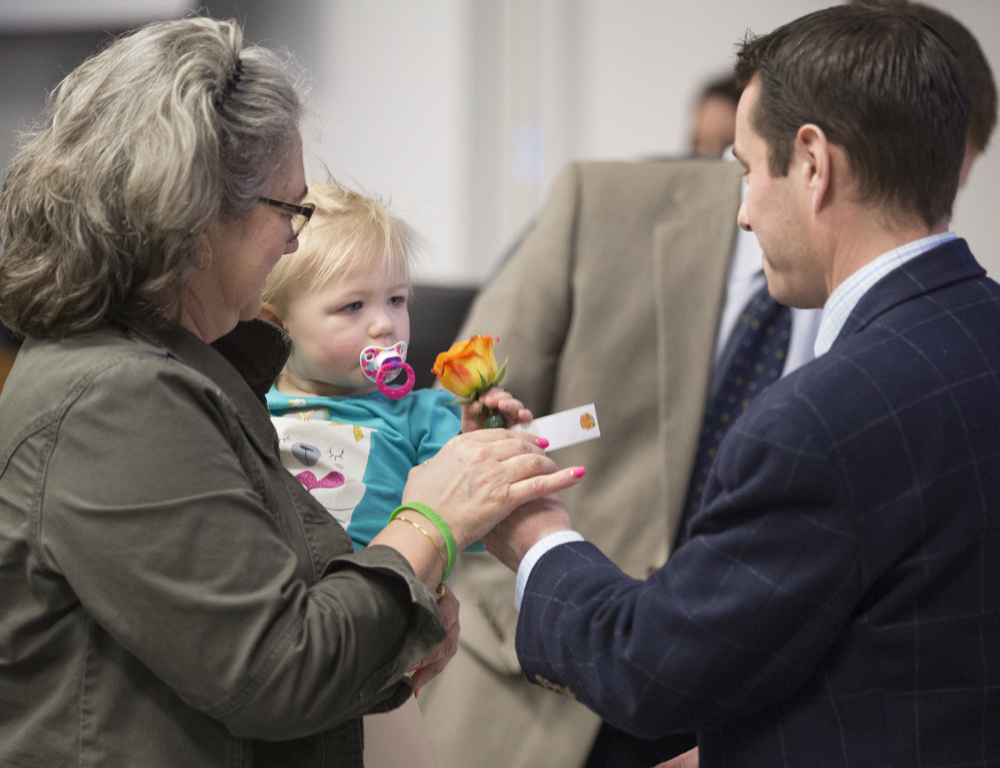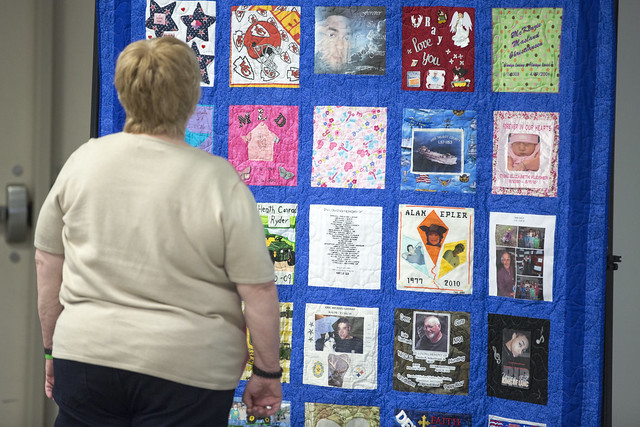Loved ones honored at organ donor event

Every year, Penn State Health Milton S. Hershey Medical Center hosts an event to honor the families whose loved ones gave the gift of life. Ninety-four individual donors between July 1, 2016 and June 30, 2017 did exactly that. On Sunday, Feb. 11, representatives from more than 20 of those families turned out to receive the heartfelt thanks of many – including a transplant recipient.
“They are all still alive in their own special way,” expressed Wesley Mallicone, who himself received a liver transplant in August 2011. Diagnosed with inflammatory bowel disease as a teen, Mallicone's health progressively deteriorated. By the time he turned 34, he says he wouldn't have survived without a transplant – or a willing donor. “This selfless act has allowed me to live my life, and your loved ones are each making a difference in their own special way,” he added.
Attendees were moved to tears as one by one, their loved one's name was called at the Rose Parade Organ Donor Remembrance Ceremony where each accepted a personalized certificate, a Donate Life pin and a colorful rose in a replica vial from the Donate Life float commemorating their family member and their decision to become a donor. The event was co-hosted by the Gift of Life Donor Program, the regional nonprofit organ procurement organization that serves Pennsylvania, New Jersey and Delaware.

Each organ donor can save up to eight lives while tissue donors can help more than 50 individuals.
Kim Rallis, organ transplant program manager at the Medical Center, notes there are currently more than 115,000 people nationwide awaiting a transplant. Last year, 34,770 transplants were performed – yet 8,000 patients die each year waiting for an organ. Although there have been advances in medical technology, the demand for organ, eye and tissue donation still vastly exceeds the number of donors.
For those interested in becoming a donor, Rallis notes there are no age restrictions. “No one is too young or too old. The most important thing is to make the decision that's right for you – and to communicate that to friends and family. Make your wishes known, register to be a donor and give them the peace they need should the time come to decide to give the gift of life.”
Pennsylvania residents can register to be an organ donor on the Pennsylvania Department of Transportation website.
If you're having trouble accessing this content, or would like it in another format, please email Penn State Health Marketing & Communications.
